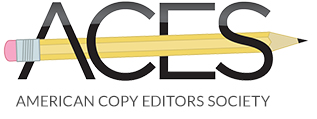A Facebook friend posted a link to a Wall Street Journal story about “organization lovers” and “free agents” at work. The workers who are loyal to their employer and identify strongly with the organization can be upset by bad management decisions. Those who are less emotionally involved can adjust and leave problems at work.
As I read the article, I was reminded that copy editors are often free agents in the workplace. We serve our purpose better when we maintain our outsider edge. We are more likely to question and apply our critical thinking when we feel more kinship with the readers than with the organization or publication we work for. Also, after the disruption of the Great Recession, we know better than to trust that our loyalty to an employer will be returned.
On the other hand, we do need to focus on doing the best job we can for the writers and editors we work with. We owe it to our colleagues to read and edit their writing with as much rigor as we can muster. We should check their facts as far as we can, make sure we can follow and understand the piece as a whole, and pay close attention to their sentence structure and word use. If we are called upon to write a headline or a summary, we should reflect the tone of the writing and be scrupulous about our grammar, style, and accuracy. But in the end, we must remember whose name is on the cover or at the top of the story and do nothing that will embarrass the writer or introduce errors into the copy.
If we work for a publication, we should understand, adhere to, and enforce its standards. Consistency helps the reader as much as it soothes the copy editor’s soul, and we owe our employers our best effort.
It’s no accident that many of us who become copy editors derive our greatest satisfaction from doing a good job, not from working for an organization, no matter how prestigious or noble. Our detachment is a strength. We are loyal to an ideal: effective and careful editing that improves communication.
